|
Combined Educational & Scientific Session
ORGANIZERS: Garry E. Gold, M.D., Daniel K. Sodickson, M.D., Ph.D.
Tuesday, 25 April 2017
| Room 311 |
16:15 - 18:15 |
Moderators: Mehmet Akcakaya, Martin Uecker |
Slack Channel: #S_Acq/Recon/Analysis
Session Number: CE08
Overview
This session will introduce some of the scope of the current revolution in artificial intelligence, then will focus on the potential impact of tools such as Deep Learning for image reconstruction.
Target Audience
a) Clinicians and basic scientists interested in learning more about how artificial intelligence may impact our field. B) Students of and experts in image reconstruction interested in how deep learning and machine intelligence may change the reconstruction paradigm.
Educational Objectives
As a result of attending this course, participants should be able to:
-Explain the basic principles of artificial intelligence, machine learning, and deep learning;
-List areas of application in which these tools are currently taking hold;
-Describe how image reconstruction can be formulated as a learning problem; and
-Differentiate various algorithms for learned image reconstruction.
16:15
|
|
A Primer on AI: How Deep Learning is Changing Everything 
Krzysztof Geras
|
16:45
|
|
Leveraging the Potential of Neural Networks for Image Reconstruction 
Florian Knoll
This talk will provide an introduction to the use of machine learning and neural networks in the field of MR image reconstruction. We will use the example of reconstruction from undersampled data from accelerated acquisitions throughout the talk and will base our formulation on iterative reconstruction methods as used in compressed sensing (CS). We will formulate a network architecture based reconstruction that can be seen as a generalization of CS, and explain how we can learn an entire image reconstruction procedure. Using selected examples, we will discuss both advantages and challenges, covering topics like reconstruction time, design of the training procedure, error metrics and training efficiency and validation of image quality.
|
17:15
|
0640.
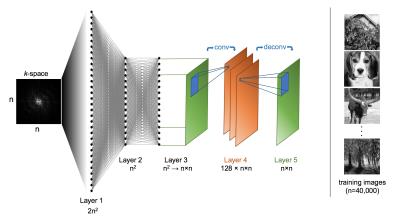 |
Neural Network MR Image Reconstruction with AUTOMAP: Automated Transform by Manifold Approximation 
Bo Zhu, Jeremiah Liu, Bruce Rosen, Matthew Rosen
It has been widely observed that real-world data presented in high dimensional space tend to lie along a nonlinear manifold with much lower dimensionality. The reduced dimensionality manifold captures intrinsic data properties such as sparsity in a transform domain. We describe here an automated neural network framework that exploits the universal function approximation of multilayer perceptron regression and the manifold learning properties demonstrated by autoencoders to enable a new robust generalized reconstruction methodology. We demonstrate this approach over a variety of MR image acquisition strategies, showing excellent immunity to noise and acquisition artifacts.
|
17:27
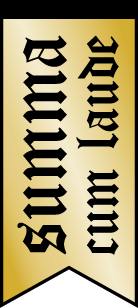 |
0641.
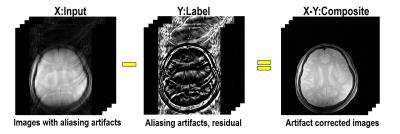 |
Compressed sensing and Parallel MRI using deep residual learning 
Dongwook Lee, Jaejun Yoo, Jong Chul Ye
A deep residual learning algorithm is proposed to reconstruct MR images from highly down-sampled k-space data. After formulating a compressed sensing problem as a residual regression problem, a deep convolutional neural network (CNN) was designed to learn the aliasing artifacts. The residual learning algorithm took only 30-40ms with significantly better reconstruction performance compared to GRAPPA and the state-of-the-art compressed sensing algorithm, ALOHA.
|
17:39
|
0642.
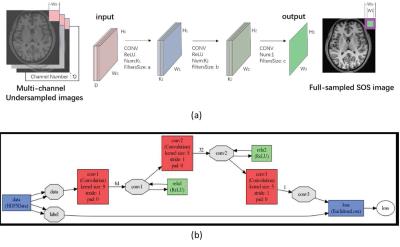 |
1D Partial Fourier Parallel MR imaging with deep convolutional neural network 
Shanshan Wang, Ningbo Huang, Tao Zhao, Yong Yang, Leslie Ying, Dong Liang
This paper develops a multi-coil SuperCNN network for 1D Partial Fourier Parallel MR imaging. With the utilization of enormous existing undersampled multi-channel images as inputs and their corresponding square root of sum-of-squares of images obtained from the fully sampled data as labels, the network is trained to identify the nonlinear mapping relationship and then performed as a predicator to reconstruct the online MR images. Experimental results on an in vivo dataset show that the proposed multi-coil SuperCNN is able to reconstruct more accurate MR images in less time compared to GRAPPA and SPIRiT from the same amount of undersampled data.
|
17:51
|
0643.
 |
A Deep Cascade of Convolutional Neural Networks for MR Image Reconstruction 
Jo Schlemper, Jose Caballero, Joseph Hajnal, Anthony Price, Daniel Rueckert
The acquisition of Magnetic Resonance Imaging (MRI) is inherently slow. Inspired by recent advances in deep learning, we propose a framework for reconstructing MRI images from undersampled data using a deep cascade of convolutional neural networks. We show, for Cartesian undersampling of 2D cardiac MR images, the proposed deep learning reconstruction method outperforms the state-of-the-art compressed sensing approaches, such as dictionary learning-based MRI (DLMRI) reconstruction, both in terms of reconstruction error, the perceptual quality and the reconstruction speed for 4-fold and 8-fold undersampling.
|
18:03
|
0644.
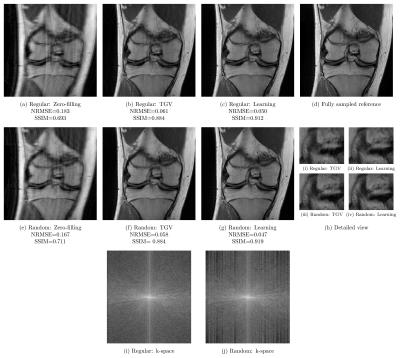 |
On the Influence of Sampling Pattern Design on Deep Learning-Based MRI Reconstruction 
Kerstin Hammernik, Florian Knoll, Daniel Sodickson, Thomas Pock
In this work, we address the question if variable density sampling of 2D Cartesian knee sequences can improve deep learning-based MRI reconstruction. Our results suggest that incoherent artifacts introduced by variable density sampling are beneficial to reconstruct highly accelerated sequences. Additionally, we show that our learning-based approach for regular sampling improves reconstruction results compared to classical compressed sensing methods with variable density sampling for our target application.
|
|






